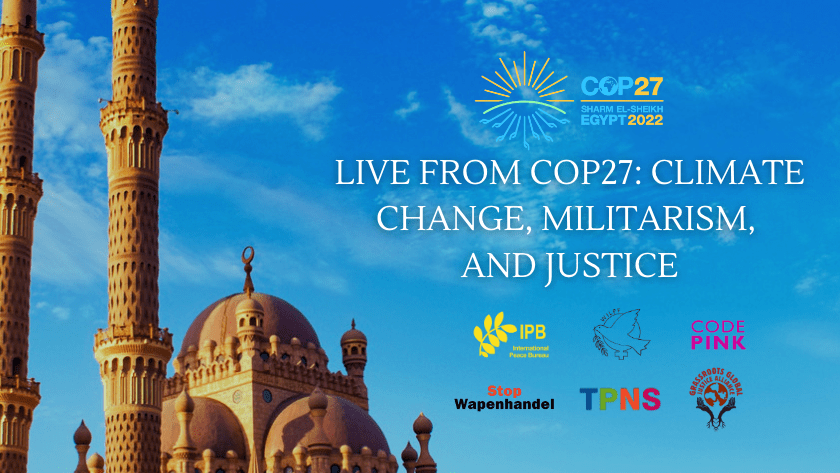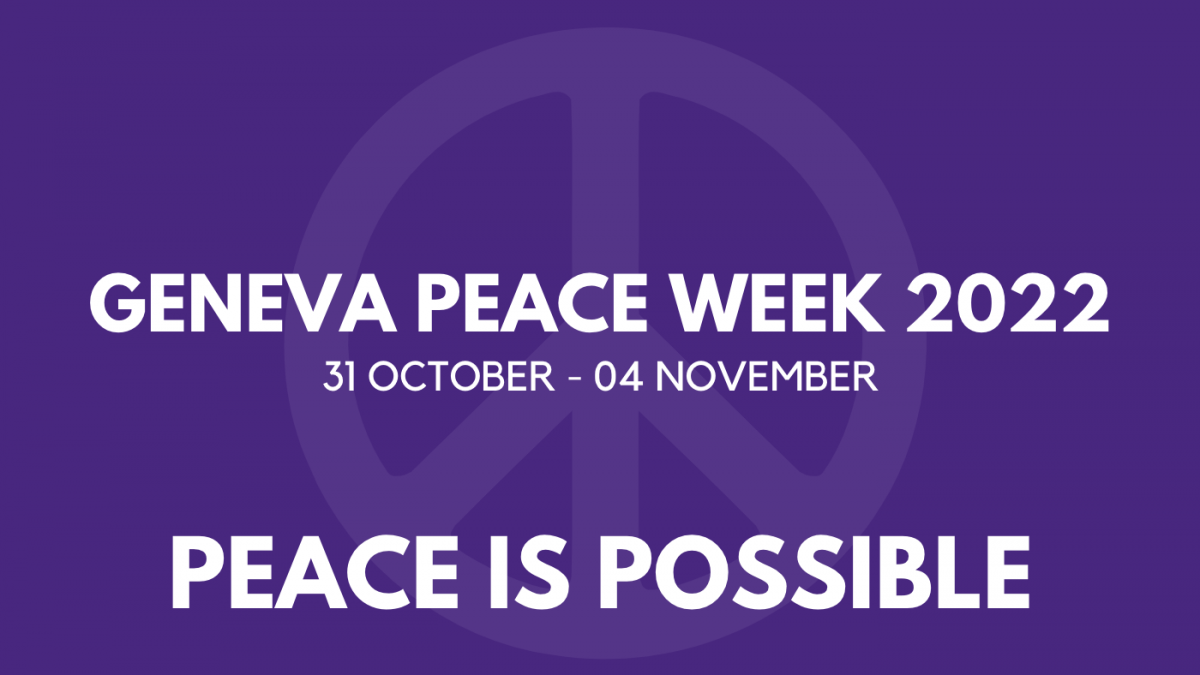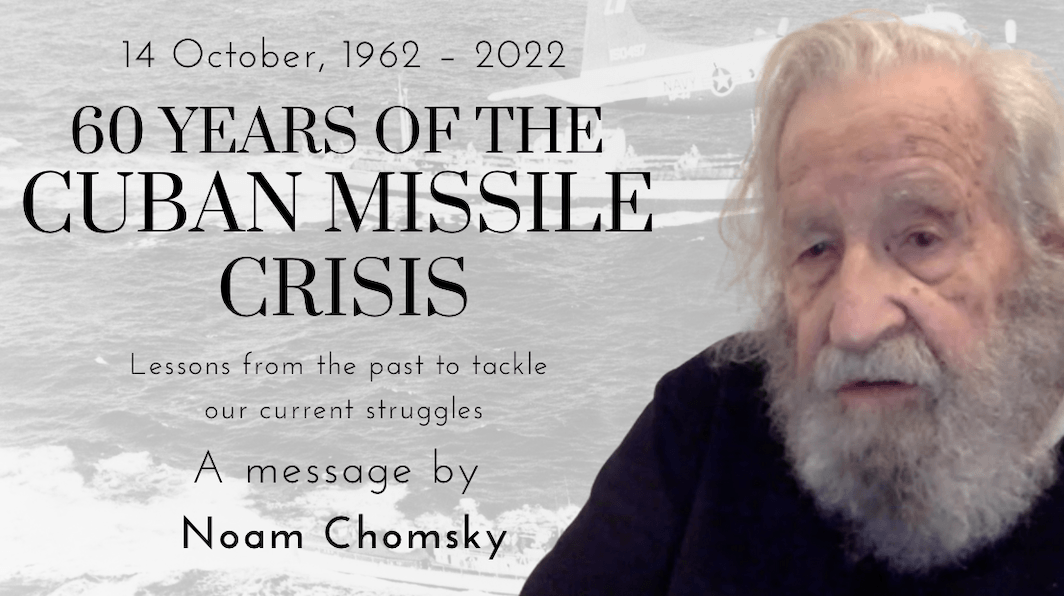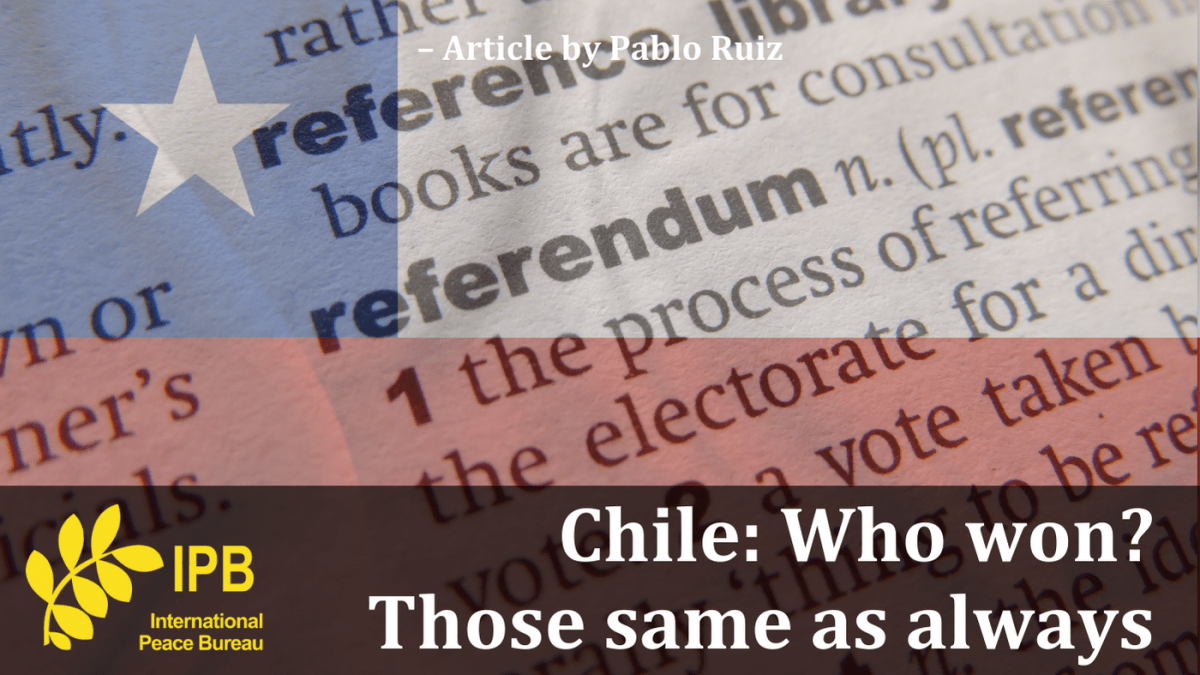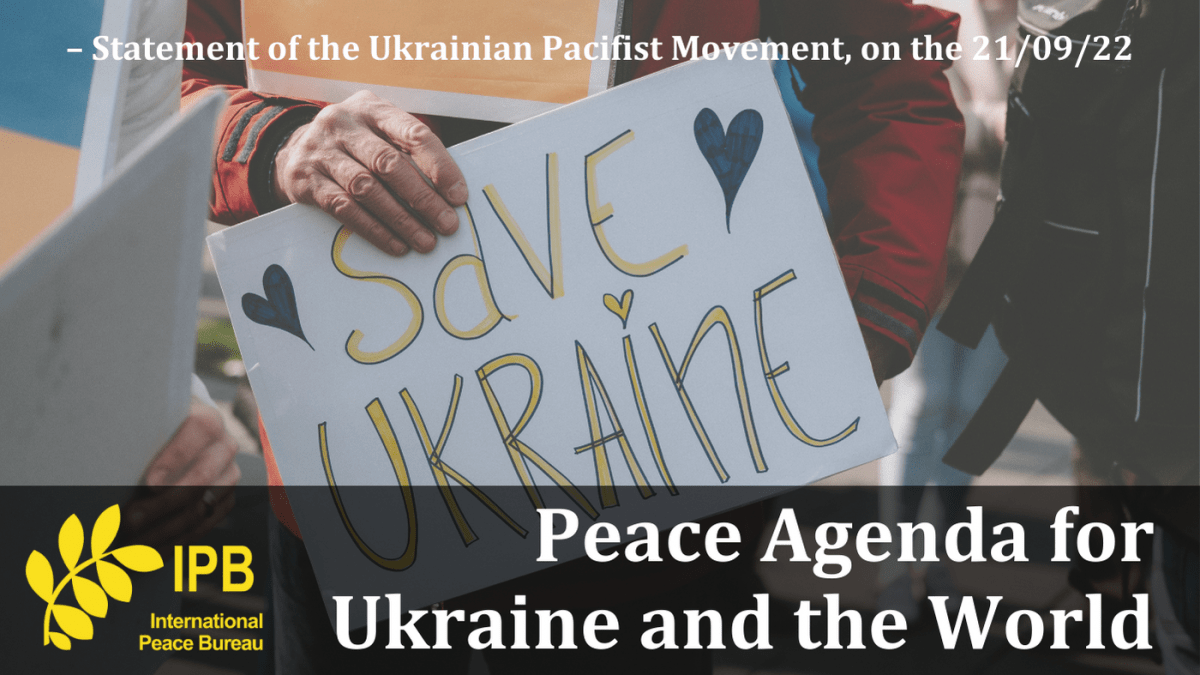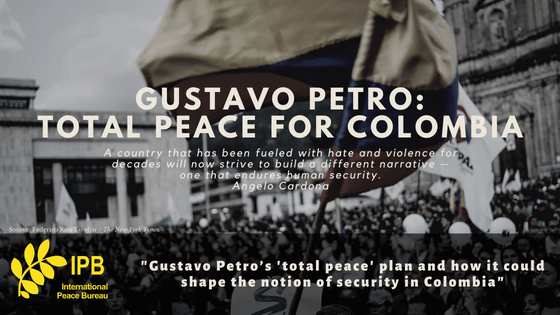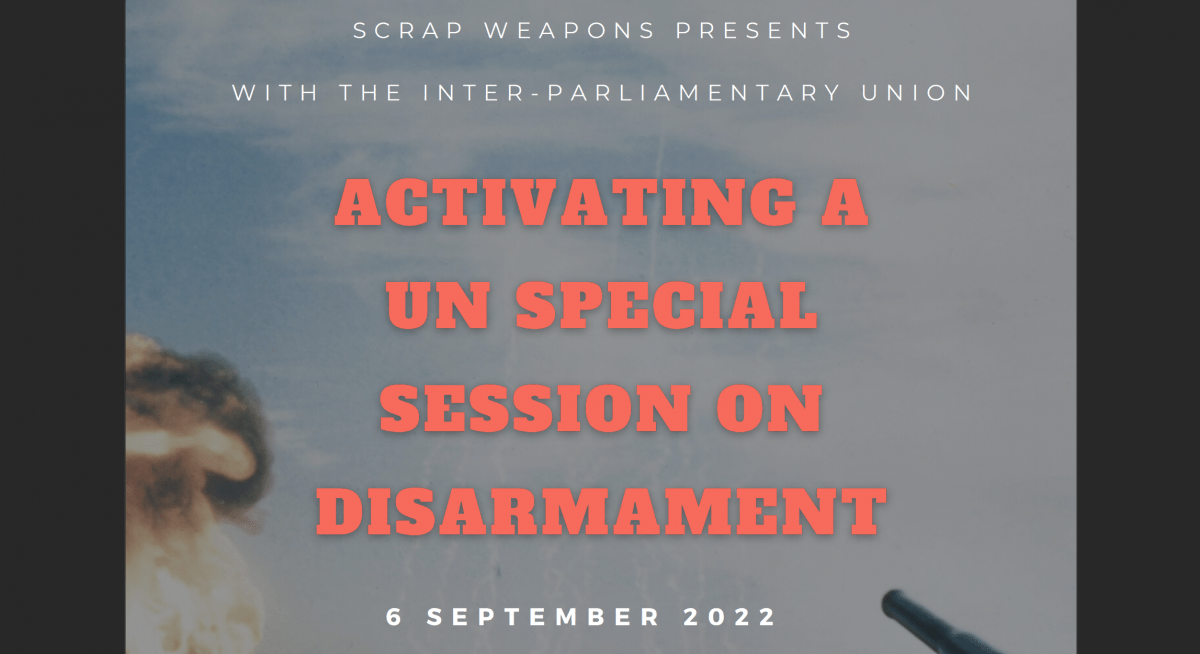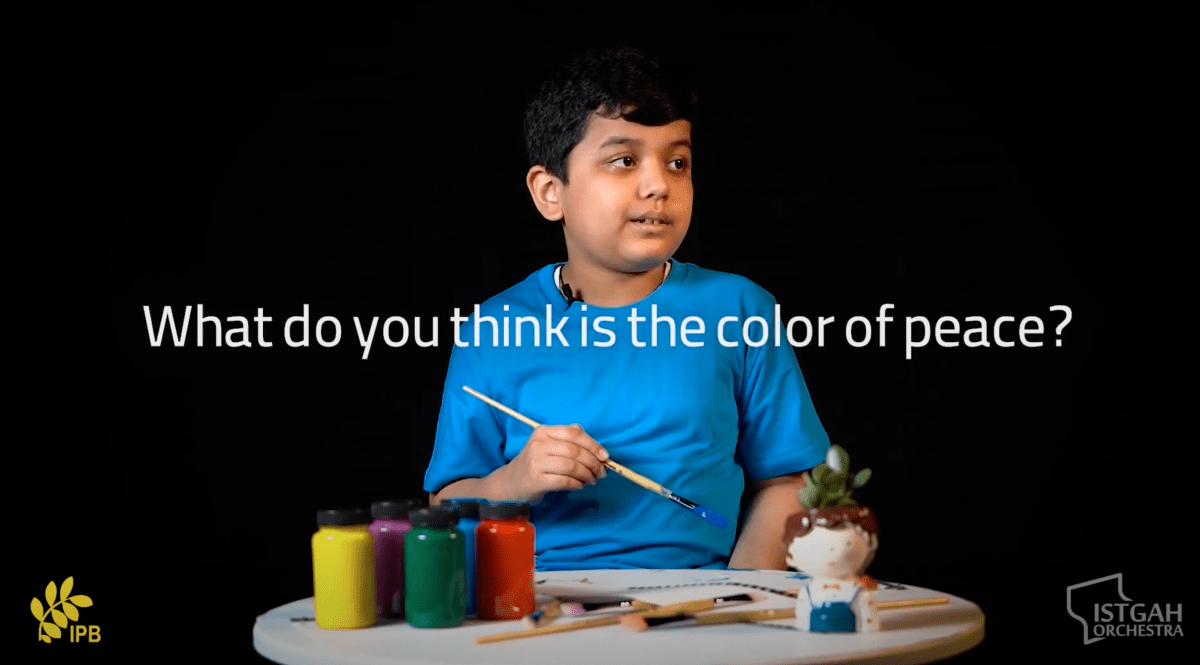The Conference of the Parties (COP27), taking place from 6-18 November in Sharm el-Sheikh, Egypt, intends to bring nations together in a new era of implementation by turning their commitments under the Paris Agreement into action. In the midst of the discussions to happen, how can climate change, militarism, and justice be approached to build an environment of peace?
Join us live from COP27:
Monday, 7 November | 12.00 CET
What to expect from cop27: How is Militarism (not) Addressed?
Join the International Peace Bureau and CODEPINK as Nancy Mancias gives us the first impressions on the ground in Sharm El-Sheikh at the start of COP27. The discussion will include what is expected to take place in the first week, the atmosphere of a COP in the context of a militarized police state, and the overlap of peace and climate.
Registration: bit.ly/COP27LIVE
Wednesday, 9 November | 16.00 CET/10.00 EST
COP27 Finance Day: Cut Military Spending for Climate Finance
Join IPB and WILPF for a conversation led by Tamara Lorincz, who will provide us insights into what activists are doing in Sharm El-Sheikh to push for reductions in military spending as a tool to support the climate transition and to provide funding for loss and damage resulting from climate change. We will discuss the open letters to the UNFCC and Green Climate Fund, the controversial F-35 carbon impact, and how these ideas are being brought forward at COP27.
Registration: https://bit.ly/COP27LIVE3
Saturday, 12 November | 17.00 CET/11.00 EST
Week 1 Wrap-Up: What have we learned? What to expect in week 2?
Join the International Peace Bureau and CODEPINK as Nancy Mancias shares her experiences from the first week of COP27 in Sharm El-Sheikh, including the range of civil society activities in the Green Zone, established connections between peace and climate, and what to expect for the second week.
Registration: bit.ly/COP27LIVE2
Tuesday, 15 November | 13.00 CET
Emissions and Spending – A Report from the Blue Zone
Join IPB and Tipping Point North South for a conversation led by Deborah Burton, who will share the results of her organization’s official COP side event, which includes the launching of a methodology around counting of military emissions. We will also discuss a newly-released briefing on military spending and explore the COP’s Blue Zone.
Registration: https://bit.ly/COP27LIVE4
Thursday, 17 November | 19.00 CET/13.00 EST
No War, No Warming: Demilitarization and Climate Justice
Join IPB and Ramon Mejia of the Grassroots Global Justice Alliance for a conversation about their groundbreaking events “No War, No Warming” in the Blue Zone of COP27 and further activities in Sharm El-Sheikh to fight for climate justice and peace.
Registration: https://bit.ly/COP27LIVE5

